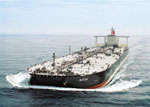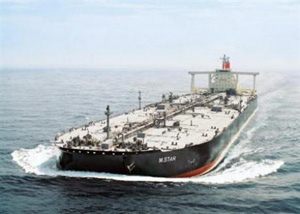 Reuters: European Union ambassadors agreed on Monday to impose an embargo on crude oil imports from Iran, to be phased in by July 1. |EU foreign ministers are expected to approve the measure later in the day.
Reuters: European Union ambassadors agreed on Monday to impose an embargo on crude oil imports from Iran, to be phased in by July 1. |EU foreign ministers are expected to approve the measure later in the day.
 BRUSSELS Jan 23 (Reuters) – European Union ambassadors agreed on Monday to impose an embargo on crude oil imports from Iran, to be phased in by July 1. |EU foreign ministers are expected to approve the measure later in the day.
BRUSSELS Jan 23 (Reuters) – European Union ambassadors agreed on Monday to impose an embargo on crude oil imports from Iran, to be phased in by July 1. |EU foreign ministers are expected to approve the measure later in the day.
Following are key facts about prior EU sanctions against Iran and economic relations between the bloc’s 27 states and OPEC’s second largest producer.
EXISTING SANCTIONS
The EU has gradually imposed sanctions on Iran since 2007 as part of Western efforts to put pressure on Tehran over its nuclear work. Sanctions include those agreed by the United Nations and autonomous EU measures. Current EU sanctions include:
– Trade ban on arms and equipment that can be used for repression, and a ban on goods and technology related to nuclear enrichment or nuclear weapons systems, including nuclear materials and facilities, certain chemicals, electronics, sensors and lasers, navigation and avionics;
– Ban on investment by Iranian nationals and entities in uranium mining and production of nuclear material and technology within the EU;
– Ban on trade in dual-use goods and technology, for instance telecommunication systems and equipment; information security systems and equipment; nuclear technology and low-enriched uranium;
– Export ban on key equipment and technology for the oil and gas industries (ie exploration and production of oil and natural gas, refining and liquefaction of natural gas). Ban on financial and technical assistance for such transactions. This includes geophysical survey equipment, drilling and production platforms for crude oil and natural gas, equipment for shipping terminals of liquefied gas, petrol pumps and storage tanks;
– Ban on investment in the Iranian oil and gas industries (exploration and production of oil and gas, refining and liquefaction of natural gas). This means no credits, loans, new investment in and joint ventures with such companies in Iran;
– Ban on new medium- or long-term commitments by EU member states to financial support for trade with Iran. Restraint on short-term commitments;
– EU governments are banned from extending grants and concessional loans to the Iranian government. Provision of insurance and re-insurance to the Iranian government and Iranian entities (except health and travel insurance) is banned;
– EU financial institutions must report to national authorities any transactions with Iranian banks they suspect concern proliferation of financing; banks must notify transfers above 10,000 euros to national authorities and request prior authorisation for transactions above 40,000 euros (with humanitarian exemptions);
– Iranian banks are banned from opening branches and creating joint ventures in the EU; EU financial institutions are banned from opening branches or bank accounts in Iran;
– Ban on the issuance of and trade in Iranian government or public bonds with the Iranian government, central bank and Iranian banks;
– EU governments must require their nationals to exercise vigilance over business with entities incorporated in Iran, including those of the Iranian Revolutionary Guard Corps and of the Islamic Republic of Iran Shipping Lines;
– National customs authorities must require prior information about all cargo to and from Iran. Such cargo can be inspected to ensure trade restrictions are respected;
– Cargo flights operated by Iranian carriers or coming from Iran may not have access to EU airports (except mixed passenger and cargo flights). No maintenance services to Iranian cargo aircraft or servicing to Iranian vessels may be provided if there are suspicions that it carries prohibited goods;
– Visa bans are imposed on persons designated by the UN or associated with or providing support for Iran’s proliferation-sensitive nuclear activities or for the development of nuclear weapon delivery systems, and on senior members of the IRGC; as of Jan. 22, visa bans and asset freezes apply to 113 persons (41 designated by the UN and the rest by the EU);
– Asset freeze on 433 entities associated with Iran’s proliferation-sensitive nuclear activities or the development of nuclear weapon delivery systems; and senior members and entities of IRGC and the IRISL (UN designations cover 75 entities); these entities include: companies in banking and insurance sectors, the nuclear technology industry and in the field of aviation, armament, electronics, shipping, chemical industry, metallurgy, the oil and gas industry, and branches and subsidiaries of IRGC and IRISL.
HUMAN RIGHTS
In addition to the nuclear track, the EU has imposed travel bans and asset freezes on 61 Iranians seen as responsible for human rights violations.
ECONOMIC RELATIONS
The EU had a free-trade agreement with Iran until 2005 and Tehran’s refusal to cooperate with the IAEA on its nuclear work. Europe remains an important trade partner. Ninety percent of EU imports from Iran are either oil or oil-related products. In 2010, the EU imported 14.5 billion euros worth of goods from Iran and exported 11.3 billion euros of goods to it. (Reporting by Justyna Pawlak; editing by Tim Pearce)


